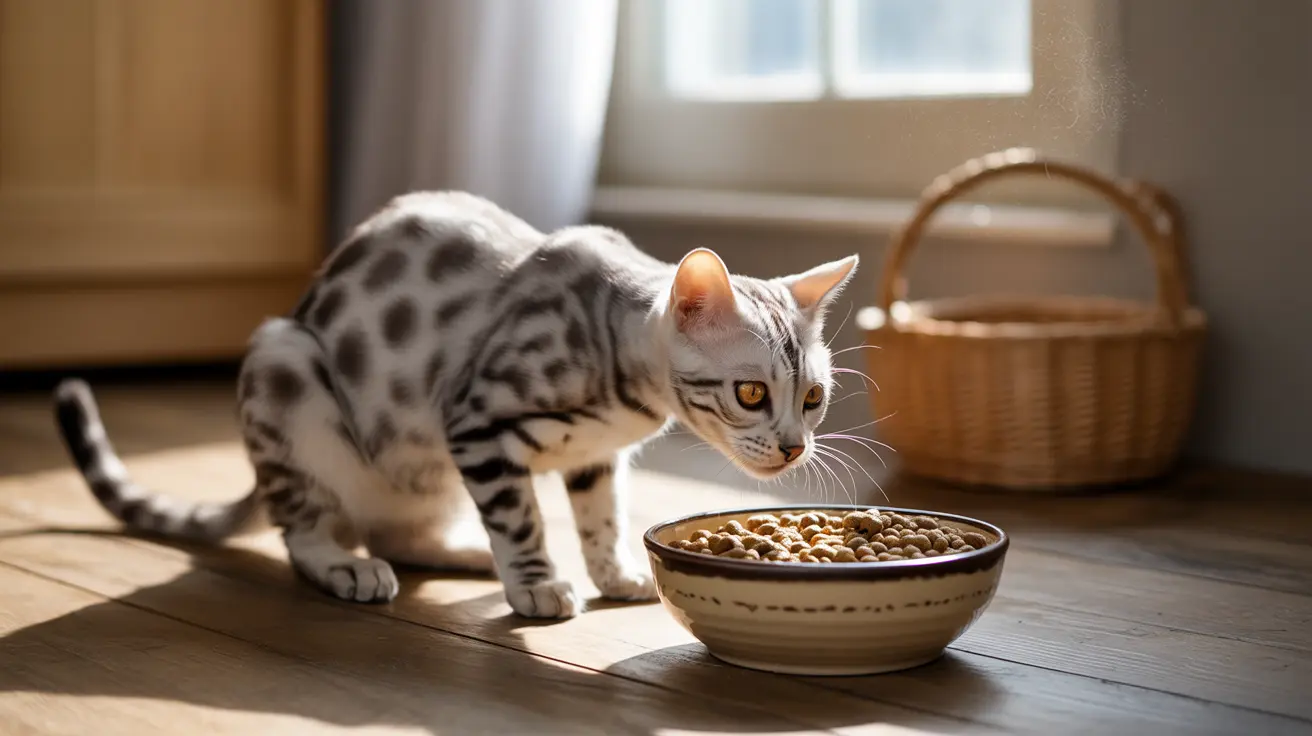As pet owners seek to understand their feline friends' dietary needs, questions about alternative food sources often arise. One common query is whether cats can safely consume ferret food. While both animals are carnivores with seemingly similar dietary requirements, the answer isn't as straightforward as you might think.
Understanding the differences between cat and ferret nutrition is crucial for maintaining your cat's health. In this comprehensive guide, we'll explore the safety, risks, and potential consequences of feeding ferret food to cats.
Understanding Ferret and Cat Nutritional Needs
Both cats and ferrets are obligate carnivores, meaning they require meat-based diets to survive. However, their specific nutritional needs differ significantly due to their unique digestive systems and metabolic rates.
Ferrets have extremely fast metabolisms and shorter digestive tracts, requiring foods with higher protein and fat content than cats. Commercial ferret food typically contains 36-62% protein and 15-20% fat, while cat food generally contains 30-40% protein and 8-20% fat.
The Risks of Feeding Ferret Food to Cats
Short-Term Effects
While feeding your cat ferret food occasionally isn't immediately dangerous, it can cause digestive upset due to its higher fat content. Symptoms may include:
- Vomiting
- Diarrhea
- Stomach discomfort
- Loss of appetite
Long-Term Consequences
Regular consumption of ferret food can lead to serious health issues in cats:
- Obesity due to excessive fat intake
- Kidney stress from too much protein
- Nutritional imbalances
- Increased risk of diabetes
- Potential urinary tract problems
Critical Nutritional Differences
Protein and Fat Content
Ferret food's higher protein and fat levels can overwhelm a cat's digestive system. While cats need protein, too much can strain their kidneys, especially in older cats or those with existing health conditions.
Essential Nutrients
Cats require specific nutrients, particularly taurine, in precise amounts. While ferret food contains taurine, the levels may not meet cats' dietary requirements, potentially leading to serious health issues over time.
Emergency Situations and Alternatives
If you find yourself temporarily out of cat food, ferret food can serve as a short-term emergency solution for 1-2 meals. However, it's crucial to return to proper cat food as soon as possible. Better alternatives in emergencies include:
- Kitten food (closer in nutritional profile to adult cat needs)
- Cooked plain chicken (temporary solution)
- Another brand of cat food
Best Practices for Cat Nutrition
To ensure your cat's optimal health:
- Stick to high-quality commercial cat food formulated for your cat's life stage
- Consult your veterinarian before making any dietary changes
- Never mix ferret food with cat food as a regular feeding practice
- Monitor your cat's weight and health regularly
Frequently Asked Questions
Can cats safely eat ferret food occasionally without health risks?
While cats can consume ferret food in emergencies for 1-2 meals without immediate danger, it's not recommended as a regular practice due to potential digestive upset and nutritional imbalances.
What are the long-term health consequences of feeding ferret food to cats regularly?
Regular consumption of ferret food can lead to obesity, kidney problems, nutritional deficiencies, and increased risk of diabetes in cats due to inappropriate protein and fat levels.
How does ferret food differ nutritionally from cat food, and why does it matter for cats?
Ferret food contains higher levels of protein and fat to accommodate ferrets' faster metabolism. These levels can be excessive for cats, potentially causing health issues and digestive problems.
Is it okay to mix ferret food with cat food for a balanced diet?
No, mixing ferret food with cat food is not recommended as it can create nutritional imbalances and mask potential deficiencies in your cat's diet.
Why do cats need taurine in their diet, and is ferret food an adequate source of it?
Cats require taurine for heart and eye health. While ferret food contains taurine, the levels may not meet cats' specific requirements, potentially leading to serious health issues over time.
Remember, while cats and ferrets share some dietary similarities, each species has evolved to require specific nutritional profiles. Always prioritize feeding your cat properly formulated cat food to ensure their long-term health and well-being.






